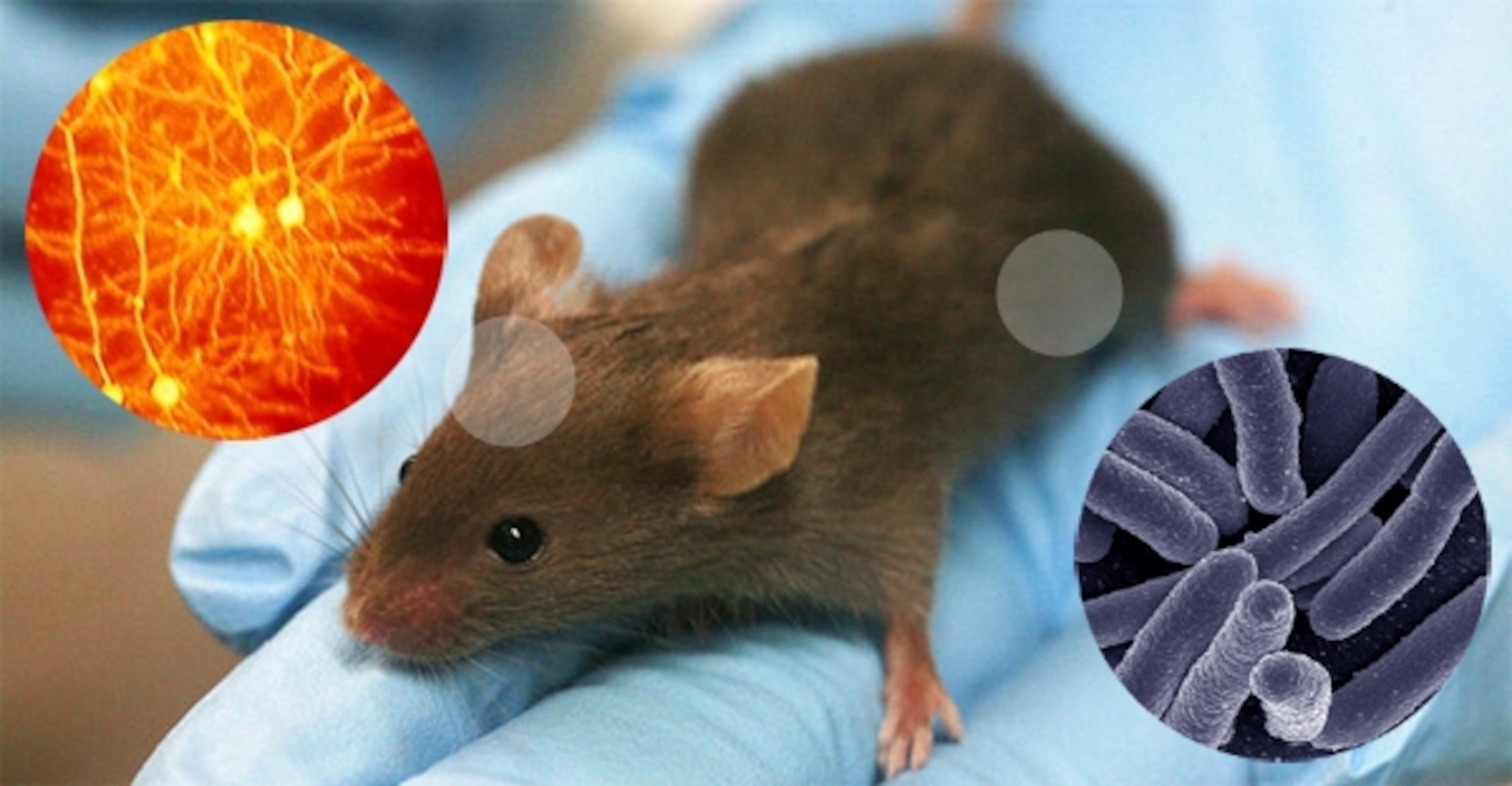
From guts to brains – eating probiotic bacteria changes behaviour in mice
From “gut feelings” to “having some guts”, English is full of phrases where our bowels exert an influence upon our behaviour. But these are more than metaphors. There are open lines of communication between brains and bowels and, in mice at least, these channels allow an individual’s gut bacteria to steer their behaviour.
The latest evidence for this “gut-brain axis” comes from Javier Bravo at University College Cork. He fed mice with a probiotic bacterium called Lactobacillus rhamnosus, often found in yoghurts and dairy products. The bacterial menu changed the levels of signalling chemicals in the rodents’ brains, and reduced behaviours associated with stress, anxiety and depression.
Probiotic bacteria – those that benefit their host – are the subject of sweeping, hand-waving health claims. But beneath the breathless marketing hype, there is some intriguing underlying science. For example, some trials have found that probiotics can help to alleviate the mood symptoms that accompany irritable bowel or chronic fatigue syndrome. To that end, Bravo wanted to see if L.rhamnosus could influence the brains of normal, healthy animals.
Bravo found that his mice, after regularly eating Lactobacillus, were more likely to spend time in the exposed parts of a maze (a common test for anxiety symptoms) than those who ate bacteria-free meals. They were also less likely to drift motionlessly when plopped into water (a common test for depressive symptoms). And during stressful situations, they built up lower levels of stress hormones.
The bacteria also boosted the role of GABA, a restraining chemical that downplays the buzzing of excitable neurons. GABA works by docking with receptor proteins, and Bravo found that Lactobacillus increased the numbers of these receptors in parts of the brain associated with learning, memory and emotional control. The GABA system is involved in several stress-related mental conditions. For example, animals with depressive symptoms have lower levels of GABA receptors in the front of their brains, and one group of anti-anxiety drugs works by enhancing the effects of GABA receptors in humans.
It may seem odd that bacteria in an animal’s gut can control what happens in its brain, on the other side of the body. But the two organs have a direct line between them – the long, branching vagus nerve, which transmits information from the gut and other visceral organs to the brain. When Bravo severed the vagus nerve in his mice, Lactobacillus lost all of its influence. It changed neither the rodents’ behaviour nor their GABA receptor levels.
Bravo’s study is the latest in an accumulating body of evidence showing that gut bacteria are little backseat drivers for their hosts. Earlier this year, I wrote about work from Rochellys Diaz Heijtz at the Karolinska Institute, who showed that germ-free mice without any gut bacteria behave differently to mice with a normal complement. They were more active, less anxious and more likely to take risks. And when Heijtz transplanted the gut bugs from normal mice into sterile babies, the recipients behaved in the usual cautious way when they grew up. A few months later, a Canadian team led by Karen-Anne Neufeld found similar results.
These studies showed that gut bacteria can affect the way a mouse’s brain develops at a young age, and Bravo expands upon them in two important ways. First, he showed that inoculations of Lactobacillus can change the behaviour of normal, healthy mice, as opposed to artificially sterile ones. Second, he showed that this works in adults, rather than just in babies.
Premysl Bercik says, “This is a very nice and well done study.” Bercik also works on the “gut-brain axis” and in one of his earlier studies, he showed that antibacterial drugs could alter the behaviour of the same strain of mice that Bravo worked on. Those drugs greatly increased the levels of naturally occurring Lactobacillus in the rodents’ guts, and Bercik suggested that these microbes might have driven the changes in behaviour. Bravo’s new results support that idea.
The fact that doses of gut bacteria can change adult behaviour has important implications. John Cryan, who led the study, says, “It is highly plausible that probiotic agents in the future could be used to treat mood and anxiety disorders.” After all, his study has shown that these bacteria play around with the same brain chemicals in the brain that antidepressants and anti-anxiety drugs do.
This doesn’t mean that eating a lot of yoghurt will sort out a bout of depression. The idea of using gut bacteria to treat disorders isn’t far-fetched; after all, some doctors have already managed to treat people with gut infections by giving them “faecal transplants”. However, when it comes to the brain, the science is still in its early days.
Bravo still doesn’t know how the bacteria use the vagus nerve to influence the brain, only that they do. Nor does he know how long the effects on GABA and behaviour would last, or how the microbes affect other chemical signals within the brain. And critically, all of these experiments have been done in mice. No one knows if the same thing applies to humans.
“We have no reason to expect that the same would not apply to humans,” says Cryan. “However, such clinical studies need to be carried out.” However, he cautions that not all probiotics do the same thing and he warns against overinterpreting the results of the study.
Reference: Bravo, Forsythe, Chew, Escaravage, Savignac, Dinan, Bienenstock & Cryan. 2011. Ingestion of Lactobacillus strain regulates emotional behavior and central GABA receptor expression in a mouse via the vagus nerve. PNAShttp://dx.doi.org/10.1073/pnas.1102999108
